Our need to conquer the world is born out of the need to conquer ourselves: Lucky Ali
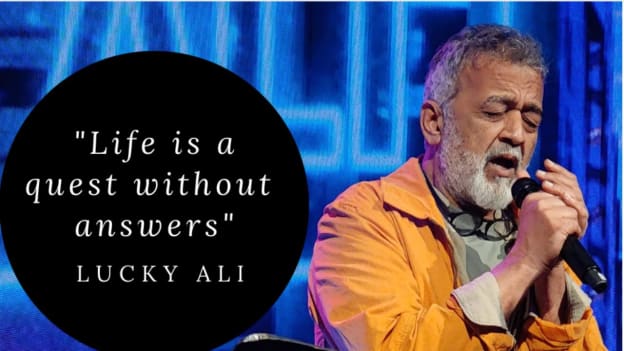
Born into an established family of actors, Maqsood Ali aka Lucky Ali’s fate was sealed. Or so it was thought. Breaking through the lines of destiny and family legacy, Ali chose to be a singer-songwriter and musician. With immense passion for music and raw talent, he walked alone in this journey where he tasted failures, success, heartbreaks but most of all, he learnt the true meaning of love and life and how to love life, seek satisfaction and be honest with yourself.
Though it's been years since Ali made his debut with Sunoh in 1996, his music still makes people across generations nostalgic. For some, it reminds them of dancing in the rain (Na Tum Jano Na Hum), while for others, his melodies help them drown their sorrows and pain (Aa Bhi Ja), feel the first flutter of love (Jaane Kya Dhoondta Hai), find their lost selves (Safarnama), and even seek peace when the world gets too much (Dekha Hai Aise Bhi). But there is little known about the man himself, his ideas, inspirations, journey, purpose and intent in life.
So, this year for People Matters TechHR India 2022 Mega Closing Keynote, we couldn’t think of a better person than Ali who can hold everyone’s attention not just with his melodies but with his words and philosophy on life. In a chat, ‘Unlock your greatest superpower: Creativity’ with Ester Martinez, CEO and Editor-In-Chief, People Matters, the music maestro spoke about the inspiration behind each of his compositions, how his songs are messages to himself, why one should accept things that didn’t turn out the way one imagined, how stagnation can seep into the life of even the richest man and the true meaning of happiness in life. Read on.
This year’s theme for TechHR is ‘Rethink What’s Possible’, which is an invitation to our community and each one of us, as professionals, to look at this pandemic as an opportunity to create transformational shifts in our society. So, what does ‘rethink what’s possible’ mean to you?
The pandemic gave me the opportunity to sit back and introspect. Many times, we get so caught up in our journey that we seem to forget the fundamentals of what makes us, us, which was a great lesson for all of us. But it was also a warning of sorts of how much we could lose if we are not aware of our environment, our personal selves and the vibes we share with one another. These past few years have made me realise that I no longer understand goals; it is the journey towards these goals that matter and whether I reach them or not is irrelevant in the larger scheme of things. The quality of the journey matters and that’s success for me. To put things into perspective, no one remembers who you are or what you wear but they will never forget how you made them feel. If you make them feel what you are feeling and share good vibes, it creates that butterfly effect.
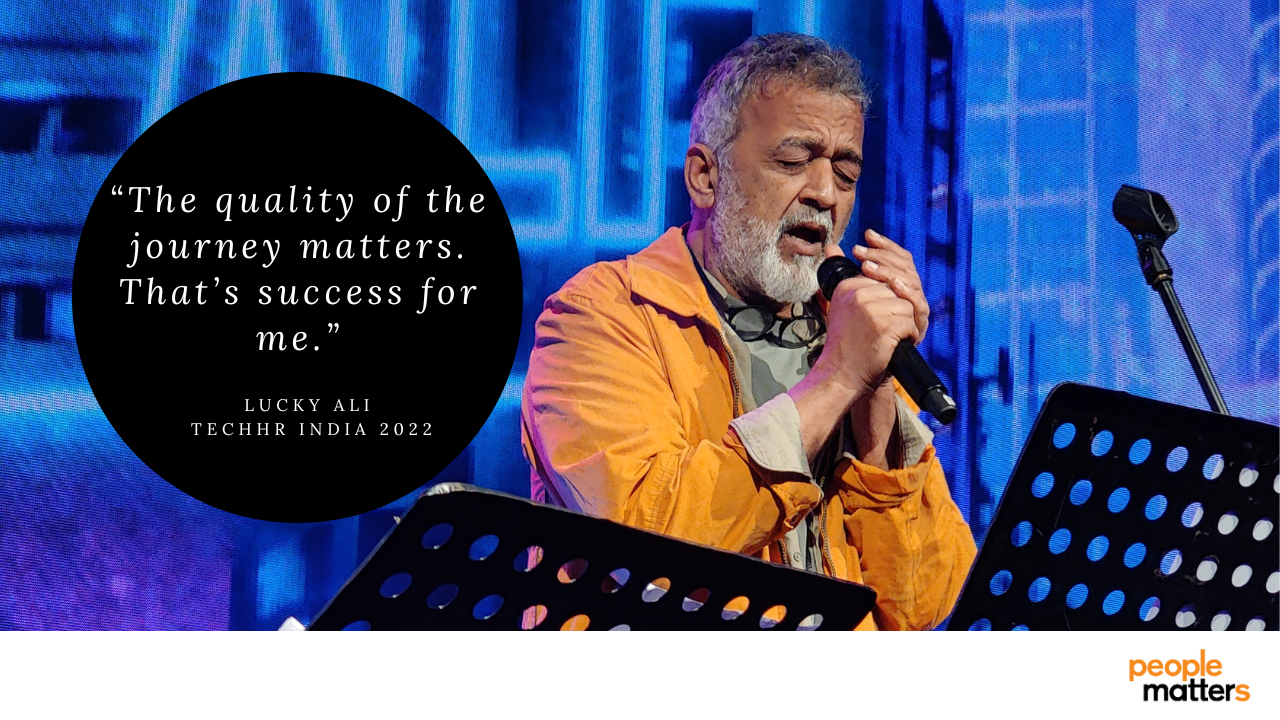
If our purpose in life is to create experiences for others, how did you find the path of your choice to invest in to create those experiences?
Well, in my case, I didn’t have choices as they were thrown onto me. I was born into a family, which was established in cinema, so it was assumed that I would follow in my father, Mehmood’s footsteps. And yes, it was a lucrative line with success beckoning you on as you have parents who can push you forward. But I believe, if you are not convinced within, you shouldn’t do it. You can always find something else that you love to achieve that satisfaction. For me, materialistic things are a by-product that happen on the way but it is more about achieving satisfaction throughout the journey.
How has the journey been for you? Did you at any point have an ‘Aha’ moment where you felt like this is it or is it a revelation?
I believe our journey is a work in progress; you can at no point in time say that you have reached. To explain it better, I feel like my journey is like a big canvas where I am just at the corner while there is a whole lot of white space left to be painted. That is how small our journeys are and how huge the reality is.
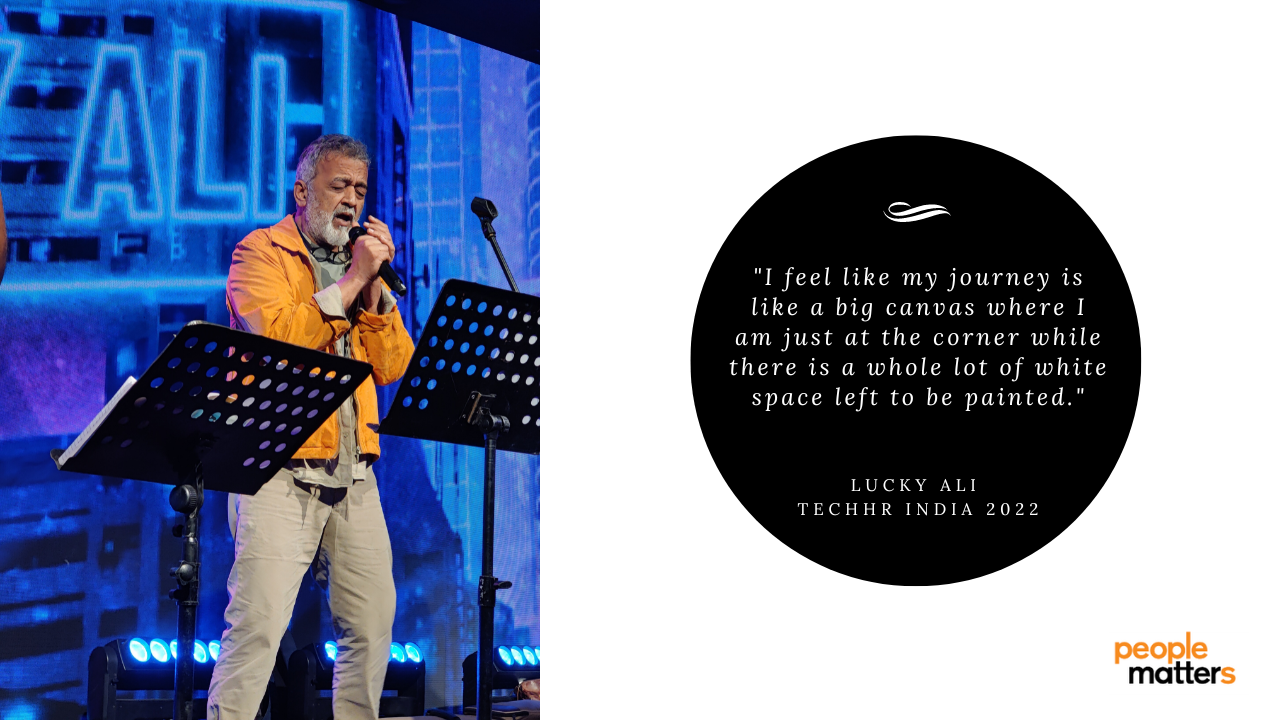
You’ve always mentioned how inspiration is everywhere. In this canvas of yours where you paint your songs and music, can you share with us instances that have translated into some of your famous songs?
I think my first song, Raat Chandni, I wrote when I felt that love towards music and realised that this is what I want to do. That song was an expression of my feelings. It was also a song of gratitude as I feel that I am quite limited in my capacity but whatever comes to me, comes from another source that allows me to excel. And I am grateful to that source.
Another song of mine, O Sanam, was born out of heartbreak. Many times, we imagine things to be a certain way but the reality is something else entirely. And our young hearts don’t want to accept these limitations as we feel we can conquer the world. But the question is: Even though you can conquer the world, why do you really want to conquer it? The answer is, we want to conquer ourselves and once you understand that, that makes the world.
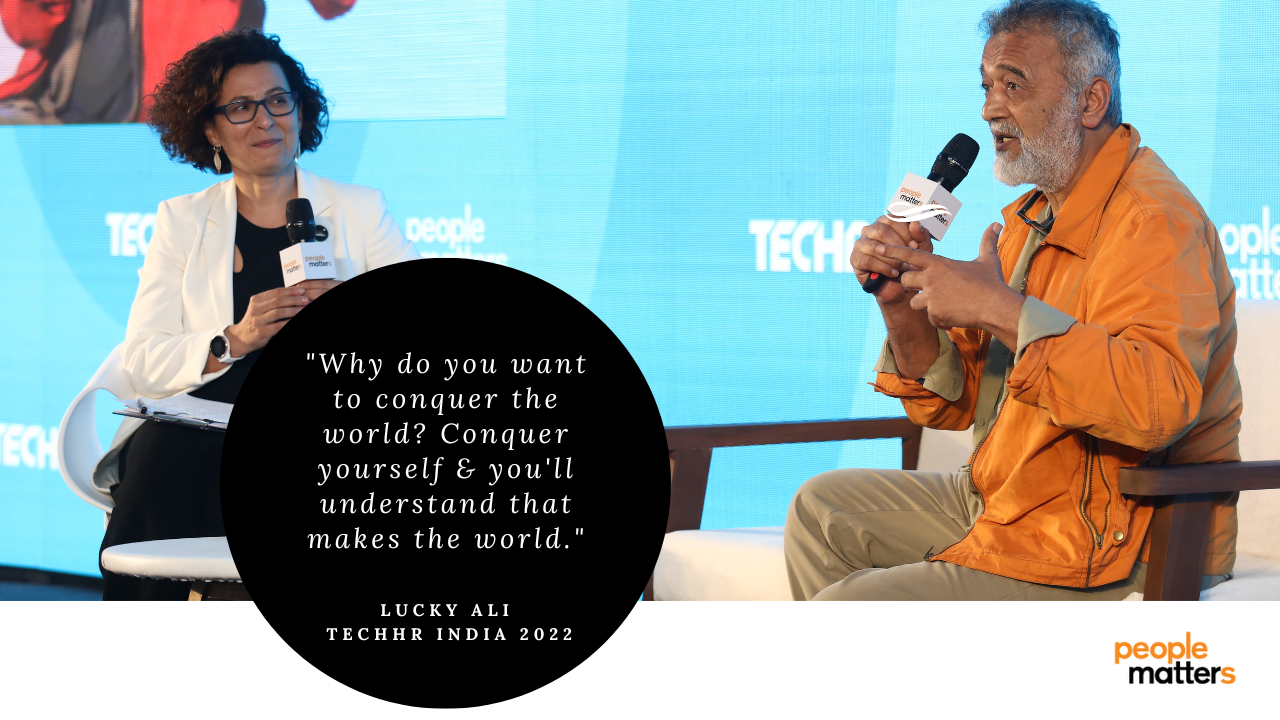
In some of your interviews, you have extensively spoken about how your songs are messages to yourself. If you were to look at your songs, can you pick one of your favourite songs that carries a message for Lucky Ali?
All my songs carry a message for me even now. For example, my song, Ghar Ko Mein Nikla Tanha Akele is a futuristic song, which talks about the time when I decided that, ‘Ho Gaya Hai’ and decided to do my own thing and not do it for everyone else. When you are doing it for yourself, there is a beauty to it - you know you have done your part and now you need to move on. You can’t stick to the same place, otherwise you will become stagnant. Even the richest person in the world, if he stays in the same place, he/she will stagnate.
You always talk about failures being a gift. And I think in the corporate world, we don’t seem to get that as we are all scared of failures. What can we learn from you in this regard?
As a child, I studied in a boarding school in Mussoorie. And most of the time, I would bunk school with my friends as my proxy. Though my class teacher loved me very much, in class 7th, she failed me because I just didn’t perform. So, when I was enrolled into Bombay Scottish School, the principal asked me which class I go to, and I replied that I go to class 8th since I was in class 7th. Soon after, he asked me if I had passed and without hesitation, I said that I did.
Classes went on for a couple of months and then my report card from Mussoorie arrived. My principal came to my class and surprised me when he said that Maqsood came to my office today to say that class 8th is actually very difficult so he wants to go back to class 7th. That was a lesson for me. It was so mortifying as Dimple Kapadia (actor) was also in the same class. That day, I understood that if you try to change the nature of things, it will have serious repercussions. As individuals, we should know our limitations and that comes with being honest with ourselves.
Another instance was when I thought that I could just go onstage and sing a song without preparation. That day when I went onstage, I sang everything ‘besura’; it was so bad that everybody began to laugh at me. And that felt embarrassing as I had overstepped my abilities. I was trying to be someone I was not.
What all of us need to understand is that you should never feel bad about failure because if you don’t fail, how will you ever pass. In other words, if you never fall down, you will never know how to get up. I feel it is our own dignity and self-respect that pushes us to get up when we fall, where we realise that we need to do this for our soul and be the best we can be because we are going to be here just once.
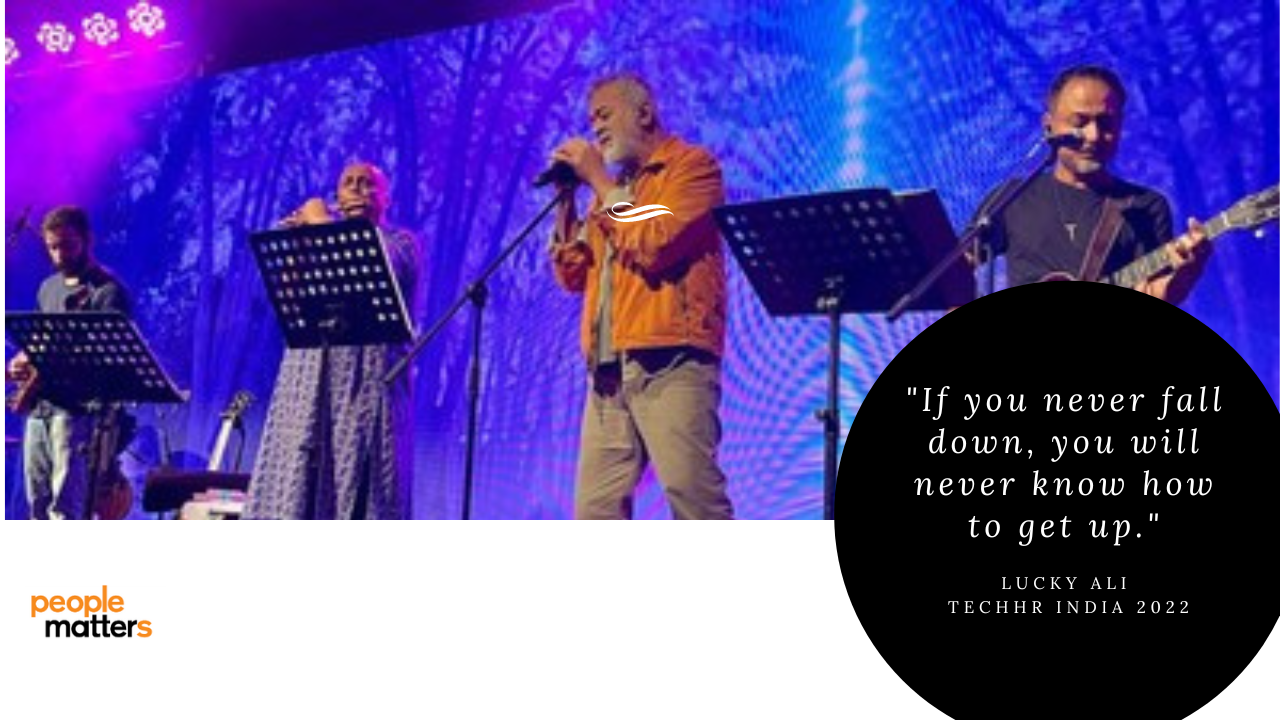
One of your reflections was that as you grow older, the dots are connecting in your life, which is helping you decide the steps that you can take everyday. Can you share with us any advice that you would like to give to your younger self?
I am faced with many paradoxes, such as joining the dots. Frankly speaking, I had dots that I needed to join. And when I joined them, they became Orion or Ursa Major. And that tells us that you never know the answers; it is a quest. If you are satisfied with life, then you should sit down. But if you are still seeking, then the dots need to be joined. Keep on doing that without looking for solutions. But always remember, the solution should always be comprehensive and should show you something.
In today’s fast-paced world where we all tend to forget those around us, Lucky Ali shows us the many ways to reflect on our failures and build a future where we love ourselves and those who help us every step of the way. While we may be busy chasing the conventional definition of success, sometimes it is essential to find your own unique path to success because if no two individuals are the same, then why should two individual paths be.
And right after an insightful session that made us all rethink what’s possible, Ali played some of his most iconic songs along with his band during the Night Fest at People Matters TechHR India 2022.












